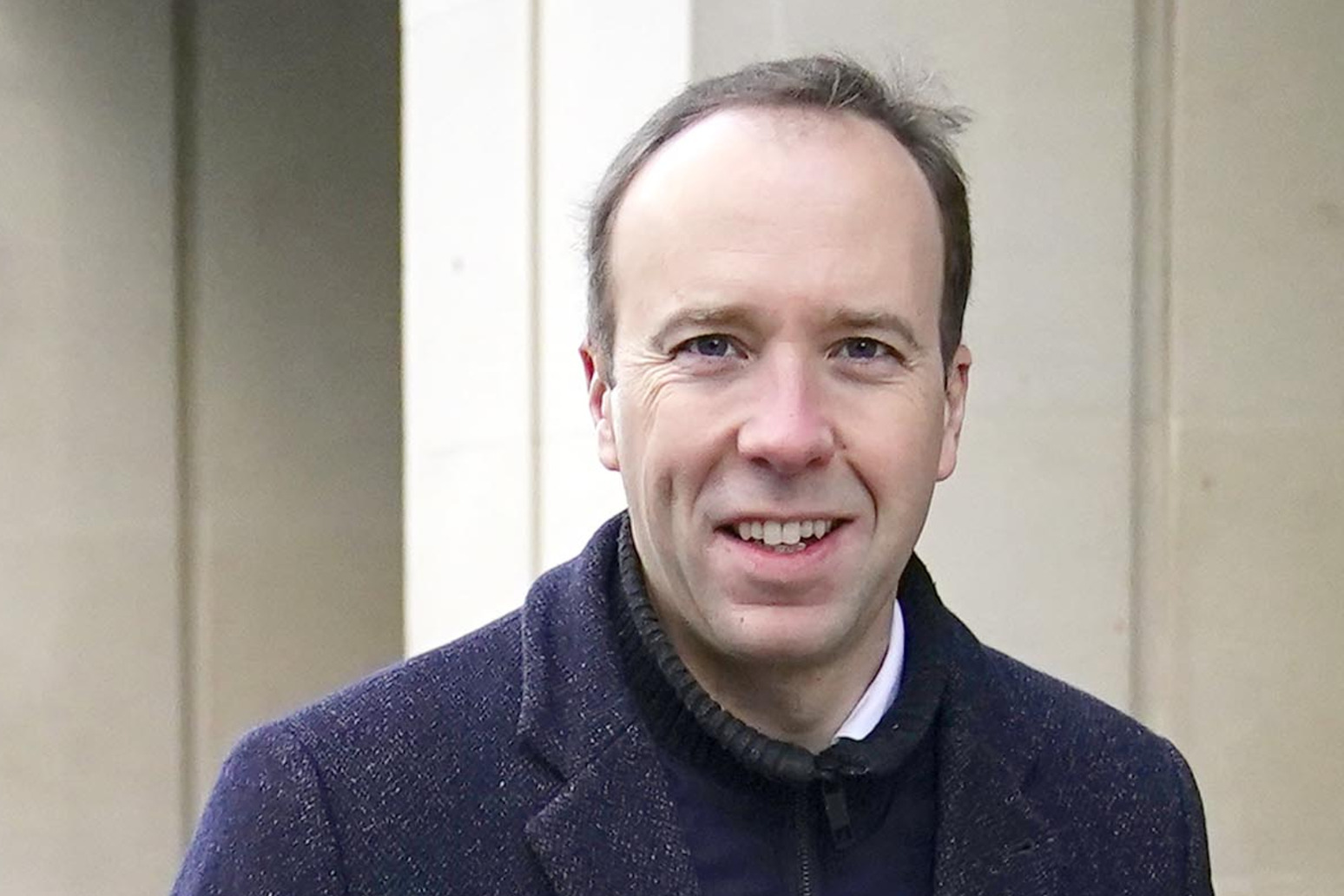
NHS should consider charging for missed appointments
That's according to former health secretary, Matt Hancock
The NHS should consider charging people who miss multiple appointments, former health secretary Matt Hancock has said.
Mr Hancock said Prime Minister Rishi Sunak was right to raise the issue last summer when campaigning for the Tory leadership as he warned of the “sheer quantity” of missed appointments.
Mr Sunak put forward plans to fine patients £10 for missing NHS appointments in England when running to be Tory leader last summer. He later backtracked after the idea was criticised by health leaders.
Mr Hancock, who lost the Conservative whip over his I’m A Celebrity appearance and now sits as an Independent MP, was speaking during a Commons debate on the future of the NHS.
Speaking about efficiency in the health service, Mr Hancock said: “I thought that the Prime Minister was right to float in the summer the idea that if you miss too many appointments without a good reason then you should be charged for them.
“One of the other problems of efficiency is that many, many appointments are missed, and this wastes the time of clinicians too.
“I think it was right to float it, it’s right to consider it, but I would be totally against having to pay for the very first.”
He added: “I think we should separate out free at the point of use from not abusing the service. Of course people miss appointments for good reasons, but often, too often, don’t have a reason, and we should be thoughtful about how we address that.”
Labour MP Margaret Greenwood (Wirral West) intervened, saying: “I completely disagree with him on the idea of charging people for missing appointments.
“I would remind him, seven million adults in this country are functionally illiterate and we have huge numbers of people with dementia. If a letter comes through the door, they may not understand it and all the rest of it.
“Does he not agree with me that actually it would be much better to put resources into understanding why people don’t come to appointments?”
Mr Hancock responded: “I entirely recognise the point and I think this has to be done sensibly. But … the sheer quantity of missed appointments is also a problem that needs to be resolved.”
The former health secretary also said the NHS should improve its use of technology and data, saying: “I wish I had been able to drive forward the use of technology even more than I did, but I pushed it as hard as I could, but if I could have gone further, then I would have done.”
Labour MP Kate Osborne, who opened the debate, warned a two-tier health service could become embedded if a rising trend of private health insurance continues.
The MP for Jarrow said: “This Government’s ideological commitment to the free market has led them to force through more and more privatisation of our National Health Service.
“Some Government backbenchers are openly talking about moving on to an Americanised healthcare system where people are priced out of healthcare, even mentioning it in this chamber.”
She added: “The amount of people paying privately for operations is up by 34% in 2022. If this trend continues, it will embed a two-tier service in our NHS and price many people out of healthcare.”
Health minister Neil O’Brien, closing the debate, said: “There are certain foundation stones of the NHS that we will never ever change: free at the point of use, regardless of income; comprehensive services provided solely on the basis of need; and never ever for sale to the private sector.
“But of course we simply can’t just preserve the NHS, we need to make it fit for the future, and the challenges that we face are changing and the NHS needs to change with them, like an ageing population and backlogs created by Covid.”
Published: by Radio NewsHub